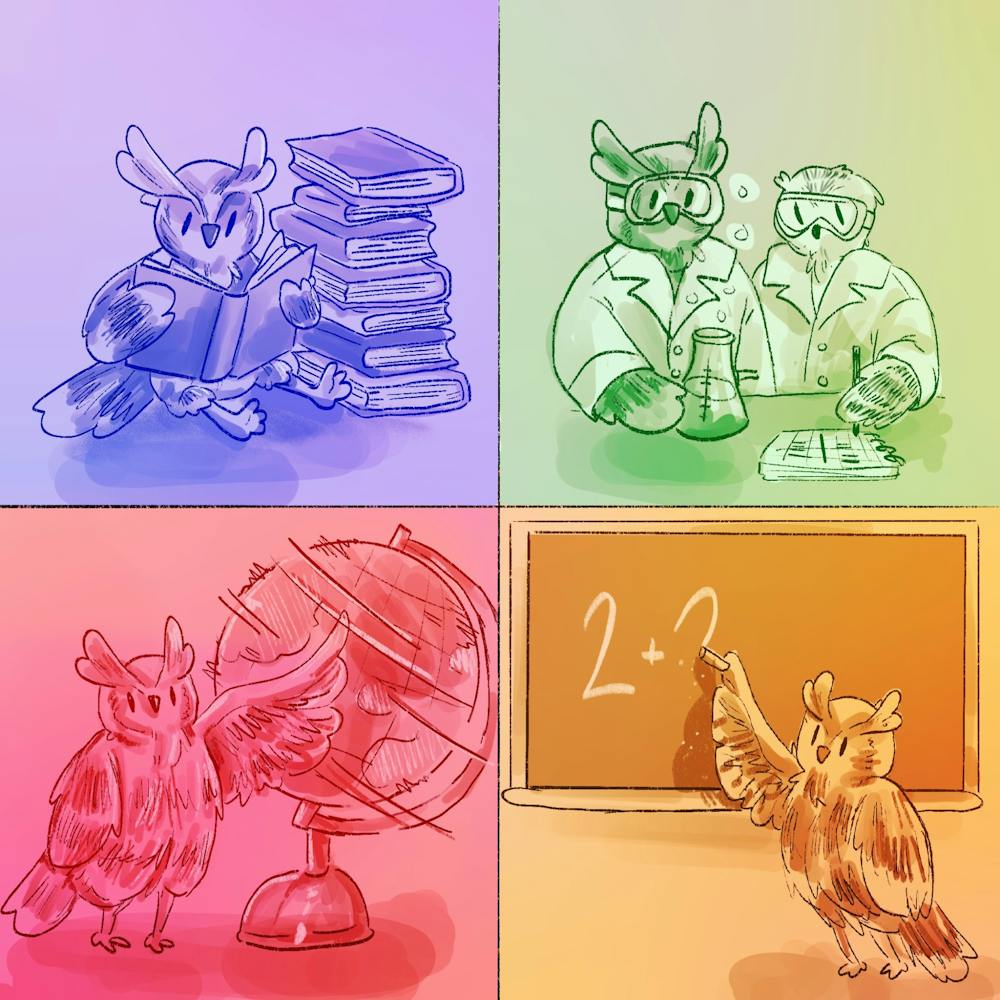New courses to explore this spring semester

It’s already that time of year — students across campus are looking to craft the perfect spring semester schedule, one that satisfies both their interests and their graduation requirements. The Thresher has compiled a list of never-before-seen courses without prerequisites that any student can take to fulfill some graduation requirements — and to explore something interesting and new.
ASIA 210: Japanese Pop Culture with Mamiko Suzuki
If you’re a fan of manga or anime, you’ll love ASIA 210, which analyzes a wide variety of Japanese popular cultural texts, including film, television, literature, music, manga, animation and more. Students will learn about these texts and consider how these texts shape global popular culture and how consumers around the world interact with them.
ASIA 210 fulfills a Distribution I credit and an Analyzing Diversity credit and will be offered from 4 to 5:15 p.m. on Mondays and Wednesdays.
HIST 102: Democracy, Power, and Industry in Modern Europe Since the French Revolution with Carl Caldwell
Get ready for a rollercoaster ride through Europe’s wildest historical adventures. HIST 102 delves into the span of time from the French Revolution all the way to the collapse of the Soviet system. There’s a lot to explore — students will learn about everything from the development of the nation-state to decolonization.
HIST 102 fulfills a Distribution I credit and will be offered from 9 to 9:50 a.m. on Mondays, Wednesdays and Fridays. Students cannot register for HIST 102 if they have credit for HIST 326.
HIST 261: History of Modern Science with Luis Campos
The history of modern science may not sound riveting, but it’s actually quite a bit of drama. Get ready to time travel all the way from 1543 to today and get an extensive debrief on the debate surrounding the origins of modern science and its many valuable, contested legacies.
HIST 261 fulfills a Distribution I credit and will be offered from 11 to 11:50 a.m. on Mondays, Wednesdays and Fridays.
HUMA 137: What is Democracy in America? with James Sidbury
What is democracy, really? To what degree can the United States call itself a democratic society? This course looks at U.S. history from the American Revolution to the age of Black Lives Matter.
HUMA 137 fulfills a Distribution I credit and will be offered from 10:50 a.m. to 12:05 p.m. on Tuesdays and Thursdays.
POLI 323: American Constitutional Law: Civil Rights and Liberties with Joseph Cozza
Grab your popcorn and get ready for POLI 323, a constitutional show that’s sure to leave you both informed and entertained. This course explores the Supreme Court’s historical interpretations and applications of the U.S. Constitution to cases involving civil rights and liberties. From privacy and personhood to First Amendment speech, students will examine the legal drama that unfolds in the highest court in the nation.
POLI 323 fulfills a Distribution II credit and will be offered from 1 to 2:15 p.m. on Tuesdays and Thursdays.
PHYS 145: Traces of Life with Jason Hafner
Ever wondered how scientists in medical clinics, labs or the jungle know whether or not life is lurking? It might surprise you to learn that they use scientific instruments heavily dependent on physics. In PHYS 145, students will learn the secrets of how these instruments work in a variety of environments.
PHYS 145 fulfills a Distribution III credit and will be offered from 3 to 3:50 p.m. on Mondays, Wednesdays and Fridays.
More from The Rice Thresher

Rice football players go Greek, join Omega Psi Phi fraternity
Rice has operated without fraternities or sororities since its founding. In their place, residential college systems have served as the core of student life. But this spring, three Rice students joined a fraternity for the first time in school history.

Core Teams talk raising kids at Rice
At most colleges, resident associates are students juggling their responsibilities alongside homework. At Rice, students aren’t the only ones who call the residential colleges home — RAs could be anything from a professor to a dean living down the hall along with their children.

Alumna Susannah Wright journeys from student to professor
When Susannah Wright graduated from Rice in 2018, the prospect of returning as faculty was nothing more than a pipe dream. Much like the tales she studies, Wright’s journey to professorship has taken her across the country and back again, landing her in a faculty role at Rice in fall 2024.

Please note All comments are eligible for publication by The Rice Thresher.